Before using this site please read the site disclaimer. Also please note that any links provided may be part of an affiliate programme (viz. eBay, Amazon) which helps support the site as I will earn a commission when visitors make a qualifying purchase.
Need to measure the main bearings on your Honda CX500, GL500, CX650, GL650 or Turbo? Perhaps you're checking the size of an existing bearing or want to positively identify an unmarked new bearing.
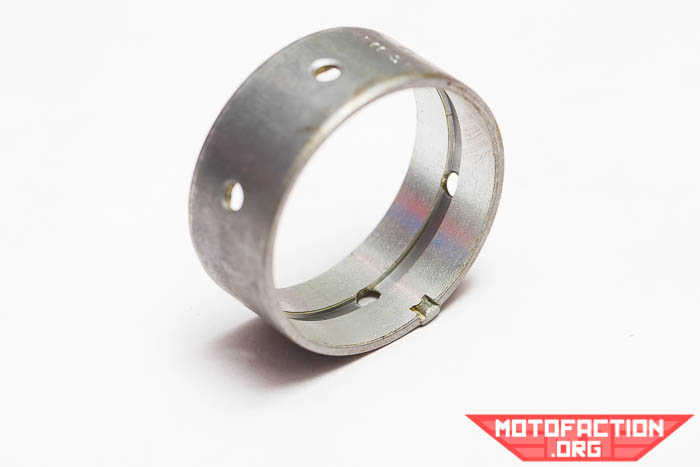
The bearing we are measuring today is a new old stock (NOS) bearing that had no markings on it. For this you will need a means of measuring the ID (internal diameter) and OD (outside diameter) down to 0.001mm accuracy (one thousandth of one mm). Practice helps, too, as getting repeatable measurements at that resolution is not necessarily easy!
Worth noting - the NOS bearing surface is actually more granular than you might expect.
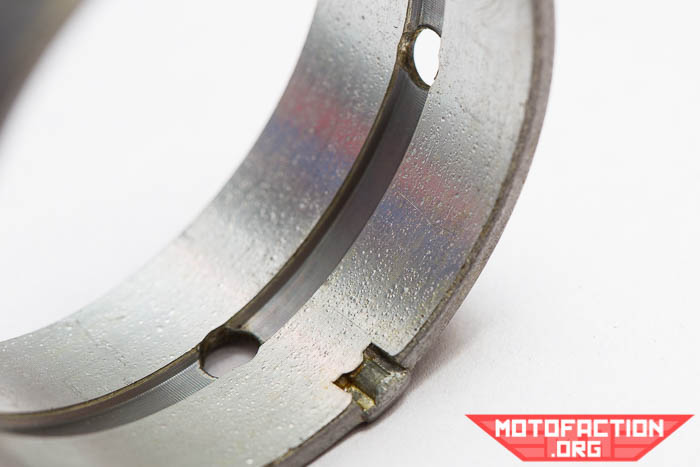
We are today using a Mitutoyo telescoping gauge (eBay US, eBay AU, eBay UK, eBay CA, Amazon) and a Mitutoyo 103-130 outside micrometer (eBay US, eBay AU, eBay UK, eBay CA, Amazon) to do the task.
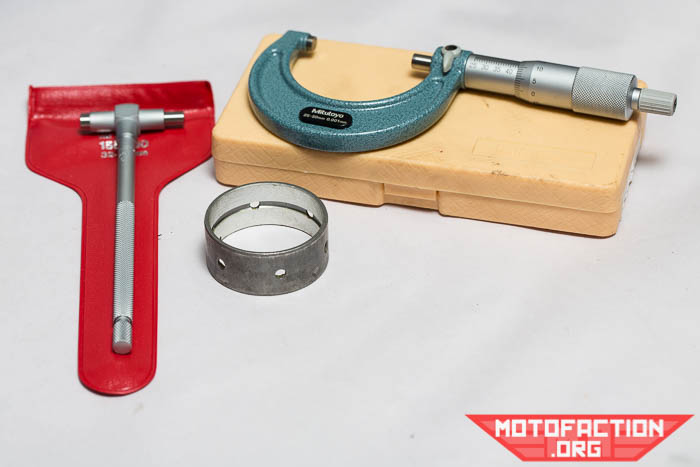
Using the outside micrometer, measure the outside diameter of the bearing:
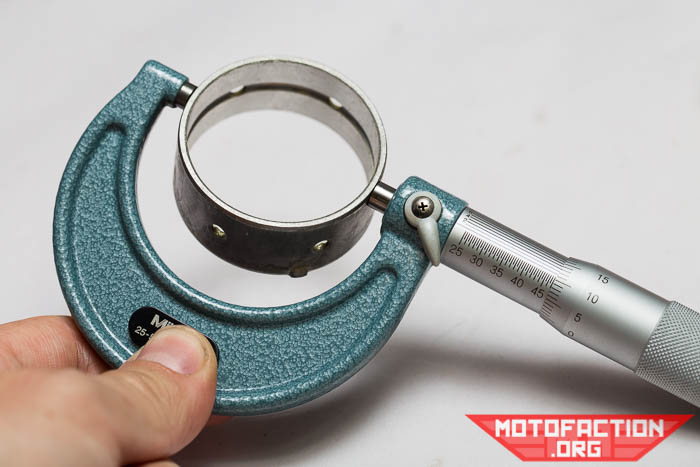
Using the internal telescoping gauge (or a bore gauge if you have one) measure the internal diameter. This metrological device does not provide a reading itself; you instead measure it with the same micrometer you just used to do the OD with:
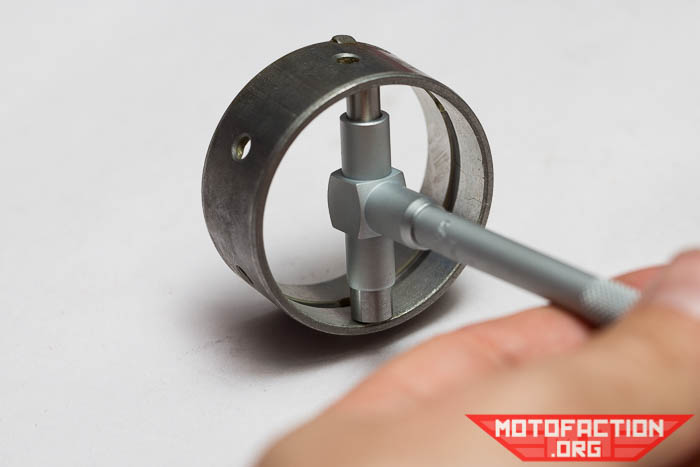
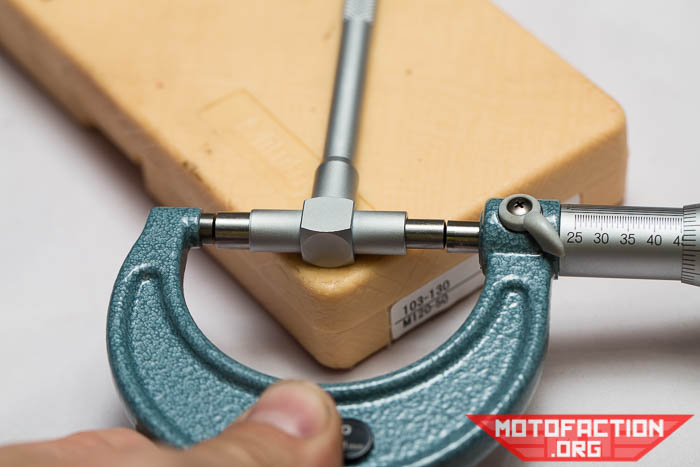
Keep at it until you have repeatable results:
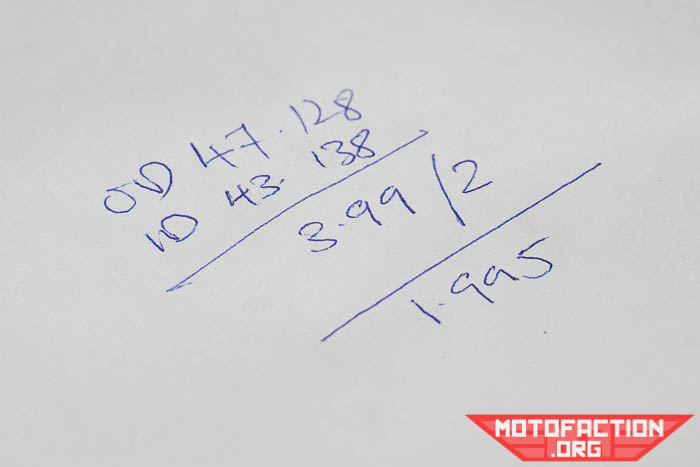
Outside diameter minus the inside diameter gives the thickness of both sides put together. Halve that result to get the thickness of the bearing. Consult the chart to see what size your measurement equates to:
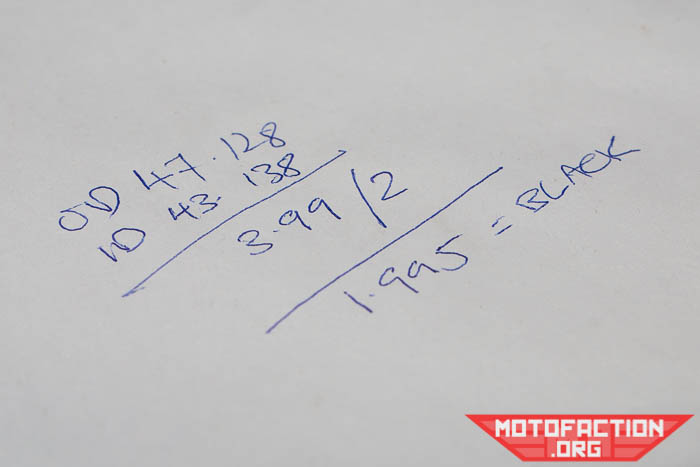
These colour-to-size matches for the crankshaft bearing thickness are the same for all of the CX and GL range, including the Turbos. This doesn't mean that all of the crank bearings are the same OD/ID, however. For curiosity's sake here are the crankcase/crank cap sizes that the bearings fit into for the various years:
Now you know what size your bearings are. Hopefully they are what you need - if so, get ready to install!
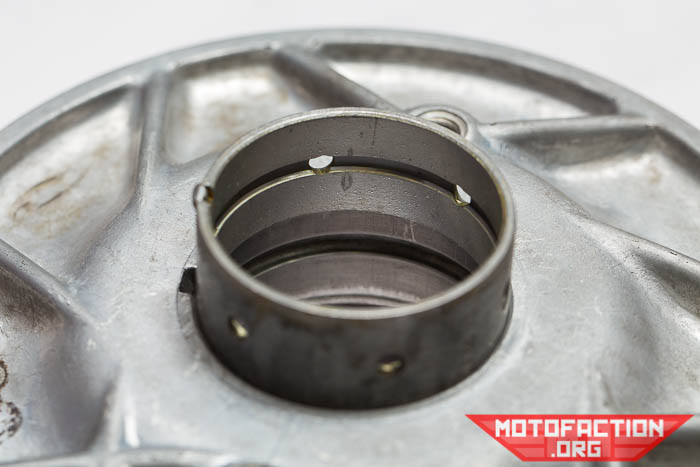
In 2019 the server has had to double in capacity to support the growing site... please consider dropping the site a donation to help cover the costs! Check out our Patreon for support options, buy a shirt, buy our apps, use my NordVPN affiliate link to sign up to their service or donate via Paypal:
| Paypal $5 link ->> | |
| Paypal $10 link ->> |